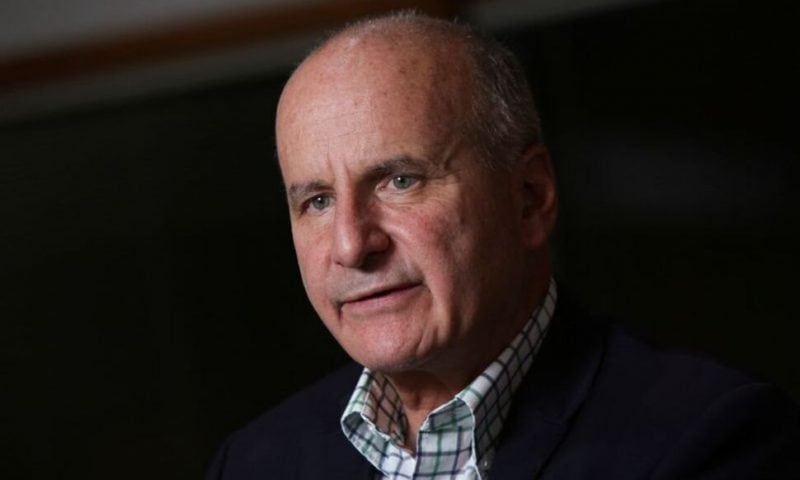SAN JOSE – Costa Rica’s leading presidential candidate Jose Maria Figueres said he would negotiate adjustments to the country’s billion-dollar agreement with the International Monetary Fund (IMF) if elected, an effort to contrast his policy with the outgoing president.
Changes to the IMF deal are necessary since Costa Rica’s macroeconomic figures have improved since January 2021, when the credit line for $1.8 billion was announced, Figueres told Reuters in an interview on Friday.
Figueres, who won most votes in the first presidential election round on Feb. 6, will go on to run in second round scheduled for April 3.
Outgoing President Carlos Alvarado had negotiated the deal as a lifeline to overcome a sharp economic crisis worsened by the coronavirus pandemic. The initial IMF offer, which included tax hikes and budget cuts, sparked street protests in October 2020.
The IMF paused disbursements after the country’s opposition-controlled Congress rejected Alvarado’s austerity proposals that included limiting the growth of public sector salary benefits. Part of Figueres’ PLN has also rejected the plan to limit public sector growth.
Talks have stalled on enacting IMF requirements like fiscal adjustments and new taxes.
“The IMF is used to incoming governments sitting down with them to review because conditions can change,” Figueres, who was president between 1994 and 1998, said at his office in Ochomogo outside of capital San Jose. “(We will meet) to find out the new elements that must be incorporated.”
The Costa Rican economy rebounded 7.6% in 2021 after contracting 4.5% the previous year. The government’s growth forecast for this year is 3.9%.
An industrial engineer who was president under the centrist National Liberation Party (PLN), Figueres said he would still push necessary austerity laws and a tax on luxury homes to comply with the IMF agreement, but would reduce by how much the taxes are hiked.
Figueres, 67, was executive director of the World Economic Forum until 2004 when he resigned amid accusations in Costa Rica that he had influenced state contracts. The case was never tried in court and he denies wrongdoing.
During his presidential campaign, he has promised a high-level committee to observe ethics of officials, vowing to fire and strip the salaries of those who are accused of corruption.
A new Congress, where the PLN will have a majority, would help achieve the necessary adjustments, he added.
Despite winning the first round of the presidential elections, Figueres was unable to obtain the 40% required to avoid a run-off. In April, he will face former finance minister Rodrigo Chaves, considered an economically-orthodox candidate.
Chaves, who has carved out an anti-establishment reputation since leaving the finance ministry in May 2020 under outgoing center-left President Alvarado, had been running fourth in recent opinion polls before surging into contention.
INTERNATIONAL STAGE
Figueres said Costa Rica needs strengthen ties with its neighbors in Central America, where instability runs rife.
“The neighborhood is very complicated,” Figueres said. He added he would keep “doors open” with the government of Nicaraguan President Daniel Ortega, who is facing international criticism after jailing political opponents.
Figueres said he was opposed to restrictions on the migration of Nicaraguans to Costa Rica, which reached a record in 2021 with 53,000 refugee claims.
Visa requirement for Venezuelans would, however, be maintained, Figueres said.
He added he would support efforts to combat drug trafficking after Costa Rica saw the largest drug seizures in its history in 2020 and 2021.
Figueres said he would maintain drug patrol programs with the United States and promote a law to seize assets of suspicious origin and allow the extradition of Costa Ricans to countries where they face trials for drug trafficking.

